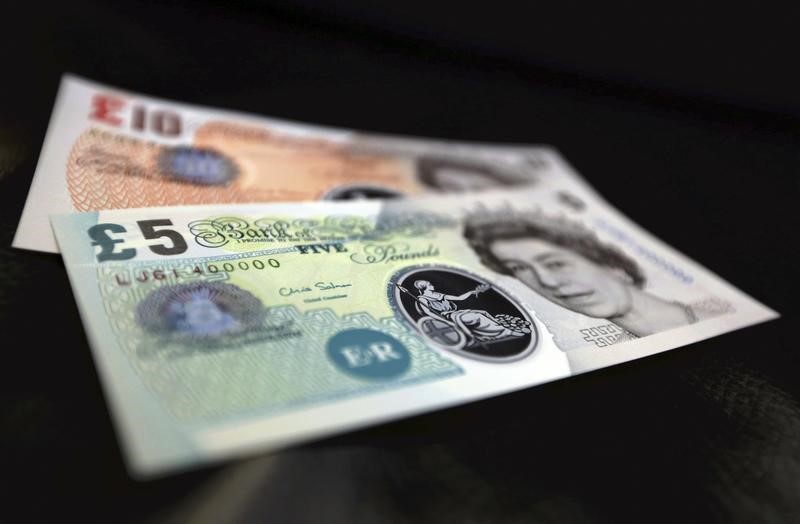Investing.com - The pound slid to fresh three-week lows against the dollar on Monday after data showed that the U.K. manufacturing sector expanded at a slower than expected rate last month, adding to concerns that the economy is losing momentum.
GBP/USD was down 0.45% to 1.5216 from around 1.5268 ahead of the data.
The Markit U.K. manufacturing purchasing managers’ index ticked up to 52.0 in May from a downwardly revised 51.8 in April, but came in below forecasts of 52.5.
"Expectations of a broad rebound in UK economic growth during the second quarter of the year are called into question by these readings," Markit senior economist Rob Dobson said.
"Manufacturing looks on course to act as a minor drag on the economy, as the sector is hit by the combination of the strong pound and weak business investment."
The report came after official figures last week confirmed that the U.K. economy grew just 0.3% in the first quarter, fuelling concerns that the rate of the economic recovery is moderating.
Recent soft economic data has underlined expectations that the Bank of England will leave interest rates on hold for longer.
Sterling also remained under pressure amid renewed concerns over a possible British exit from the European Union.
Prime Minister David Cameron’s government introduced a law in parliament on Thursday to ensure a U.K. referendum on EU membership will be held by the end of 2017.
The dollar shrugged off data on Friday showing that the U.S. economy contracted in the first quarter, as recent indications of a rebound in growth continued to support expectations for higher interest rates.
U.S. gross domestic product contracted at an annual rate of 0.7% in the first three months of the year, instead of the initial estimate of 0.2% growth the Commerce Department said.
Demand for the dollar continued to be underpinned after economic data last month indicated that the economy is gaining momentum after a weak first quarter.
Elsewhere sterling was higher against the euro, with EUR/GBP down 0.33% to 0.7160.
The single currency remained under pressure as concerns over the prospect of a Greek debt default weighed.
Greece is due to make a €305 million payment to the International Monetary Fund on June 5.
Concerns over a possible default have mounted since Athens warned last month that it will be unable to make the repayment if a cash-for-reforms deal with its international lenders was not reached by then.
Meanwhile, data on Monday showed that the euro zone manufacturing sector posted modest growth in May.
The euro zone manufacturing PMI came in at 52.2, unchanged from March’s final reading and a 10-month high, but down slightly from the preliminary estimate of 52.3.
Weakness in the region’s core economies persisted, with France’s manufacturing sector still in decline and Germany registering only modest growth.
